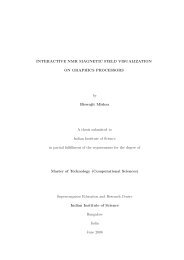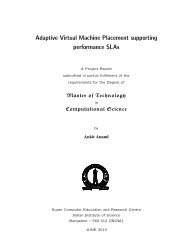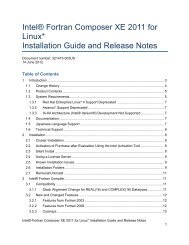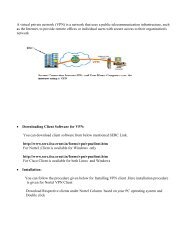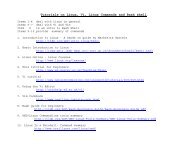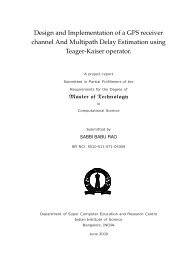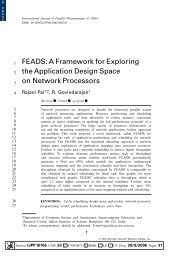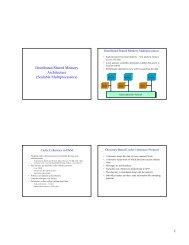Power Grid Analysis in VLSI Designs - SERC
Power Grid Analysis in VLSI Designs - SERC
Power Grid Analysis in VLSI Designs - SERC
Create successful ePaper yourself
Turn your PDF publications into a flip-book with our unique Google optimized e-Paper software.
1. Temperature dependency of power. <strong>Power</strong> consumption <strong>in</strong> CMOS depends on mobilityfactors, threshold voltage and dop<strong>in</strong>g concentrations. These factors are temperaturedependent. Hence power also varies accord<strong>in</strong>g to variation <strong>in</strong> temperature.2. Voltage dependency of power. Voltage dependency of power is well known.(P=C*V*V*f). This is true for CMOS technology also. If we model, the CMOScomponent as a capacitor, it is clear that power varies based on the variation on supplyvoltage.3. <strong>Power</strong> <strong>in</strong>creases with <strong>in</strong>crease <strong>in</strong> frequency of operation. In fact, many designs now aday have different modes of operation. A high frequency mode when the device isoperational and a low frequency mode when the device is <strong>in</strong> standby mode. The impactof frequency on power estimation is already be<strong>in</strong>g discussed <strong>in</strong> previous section.4. Now a day, most of the designs have a significant chunk of flops or registers. Accord<strong>in</strong>gto one statistics, around 40-50% logic of the design conta<strong>in</strong>s flops. If all the flops areclocked throughout the operation, clock network consumes almost 50% of total power.It is sometimes helpful to analyze power consumption on clock network. This workanalyzes clock power contribution to total power.5. Process corner also impacts the currents and power consumption. This is especially truefor leakage power. A typical <strong>VLSI</strong> process has leakage power variation of order of 4-6from worst process to best process.44



